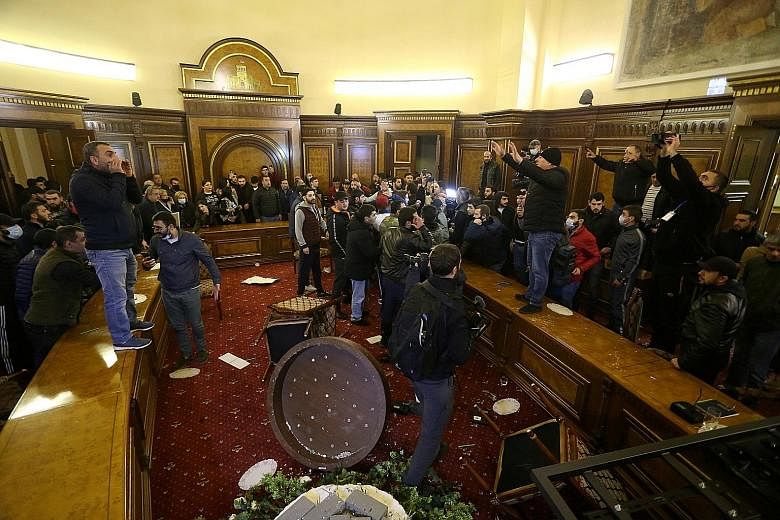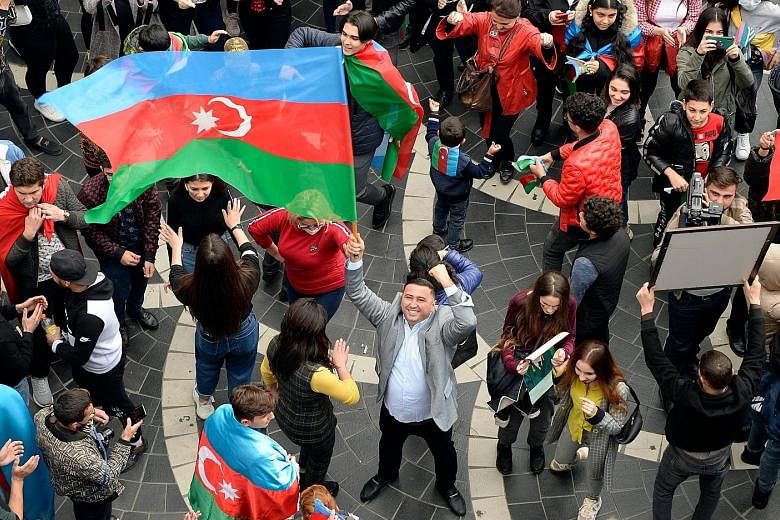What's the story?
On Tuesday, Armenia and Azerbaijan agreed to a Russian-brokered peace deal to end weeks of heavy fighting in Nagorno-Karabakh and find a long-term solution to the dispute over the region.
The deal ends six weeks of military conflict in the South Caucasus region that has killed more than 1,200 and left thousands displaced.
The new peace deal was signed by Russian President Vladimir Putin, Azerbaijani President Ilham Aliyev and Armenian Prime Minister Nikol Pashinyan.
The terms include:
• A complete ceasefire and cessation of all hostilities. Both sides will maintain positions in the areas that they currently hold. This is a significant gain for Azerbaijan as it reclaimed 15 per cent to 20 per cent of its lost territory during the recent conflict, Agence France-Presse reported.
• About 2,000 Russian peacekeepers will be deployed along the line of contact in Nagorno-Karabakh. They will remain there for a period of five years.
• Refugees and internally displaced persons will return to the region and the two sides will exchange prisoners of war and other detained persons, as well as bodies of those killed in the fighting.
• A new transport corridor will be opened through Armenia, linking Azerbaijan and its western exclave of Nakhchivan. It will be under Russian control.
Why it matters
Nagorno-Karabakh is a small region that straddles Western Asia and Eastern Europe. It is internationally recognised as part of Azerbaijan, but most of it is controlled by Armenian separatists and the majority of its population is Armenian.
In the late 1980s, Armenia and Azerbaijan went to war for control of the area, which escalated after both declared independence from the Soviet Union.
Armenia's claim to the region has not been recognised by any United Nations member, all of whom still consider the disputed areas as under Azerbaijani jurisdiction.
Fighting was renewed in September as both sides blamed each other for deadly attacks in the area.
The dispute attracted regional and Western concern as the area is crossed by pipelines carrying oil and gas from the Caspian Sea to global markets, reported The Guardian.
Russia is a major regional player and one of the co-chairs of the Minsk Group, the diplomatic effort to mediate the Nagorno-Karabakh dispute. The group includes the United States and France.
What comes next?
Soon after Armenia's Prime Minister announced the "painful" deal, crowds started protests in the Armenian capital of Yerevan, accusing the government of betrayal as they believed that fighting should have continued.
In contrast, there was a mood of celebration in Azerbaijan's capital Baku, where crowds broke out in chants, waved flags and sang the national anthem, reported the BBC.
The agreement makes no mention of the future status of the Armenian-populated areas of Nagorno-Karabakh or how future negotiations will take place.
The question now is: Will the deal hold?
Since September, multiple ceasefire attempts have failed. Political opposition to the deal in Armenia could impact the long-term success of the agreement.



